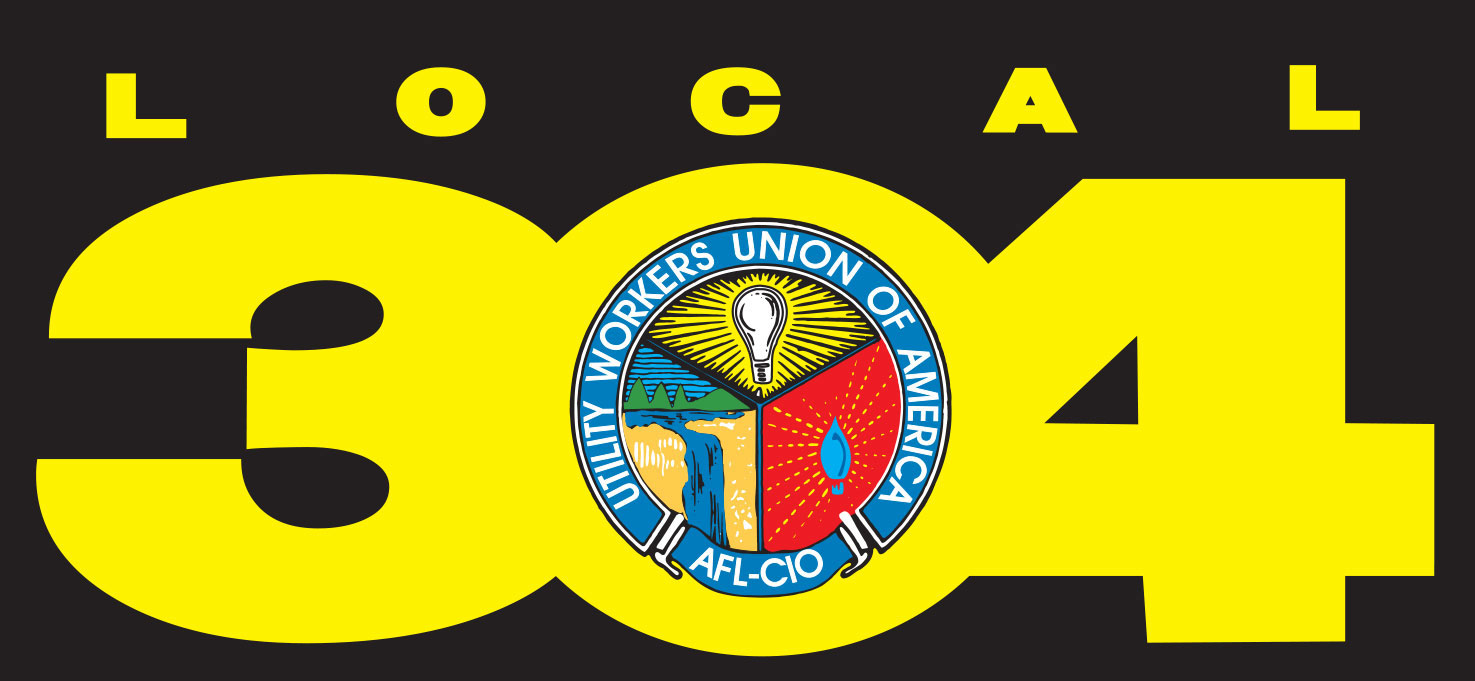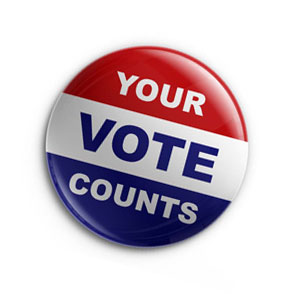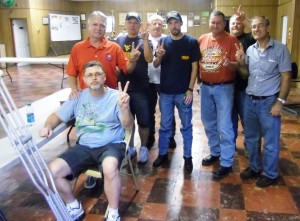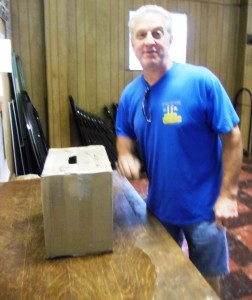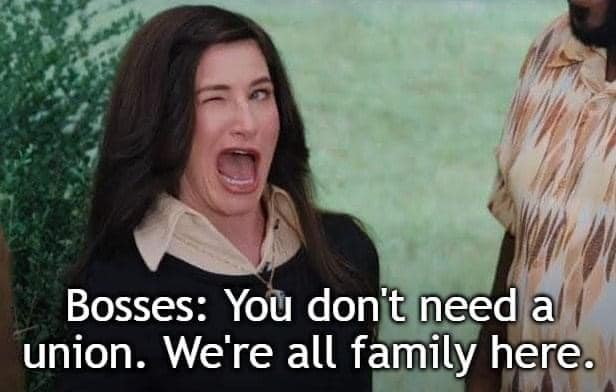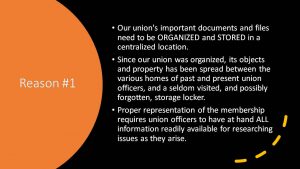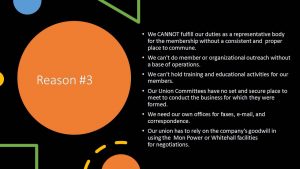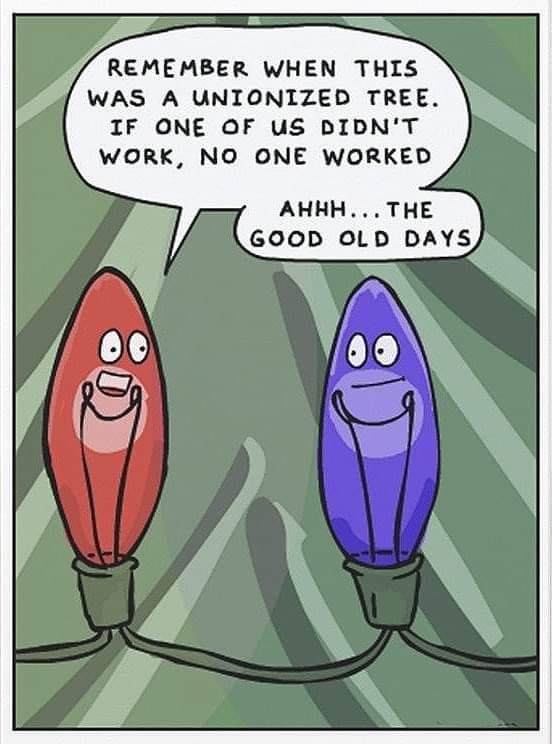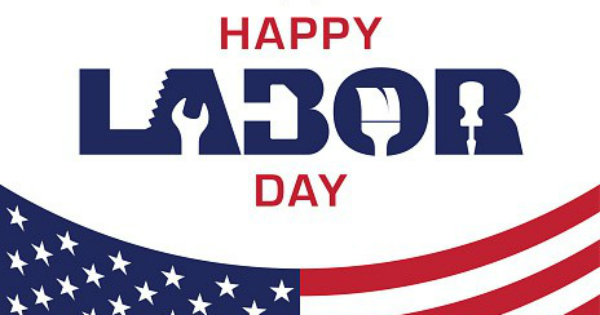Nominations for UWUA Local 304’s 2022-2025 Term

Nominations for YOUR union’s officers for the 2022 through 2025 term will be help at the September meeting, with elections in Octobers, and the elected representatives assuming their roles in November. We know there will be a lot going on, but this is vitally important.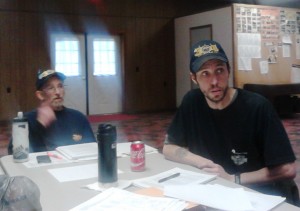
There is not a lot of glory in serving as a union officer, so some would say why would I want to. The pay-off is in knowing you did YOUR part to protect your rights, benefits, and compensation for yourself and your Union Brothers and Sisters.
Being a union officer requires a commitment of time, some of which the union compensates you for and some it doesn’t. It requires discretion in how you conduct YOUR unions business to protect your union’s reputation and the member’s privacy and dignity. One of the hardest things required is discipline and self control. You must be mature enough to recognize what is wheat and what is chaff in the things you deal with within 304 as well as issues you bargain with the company.
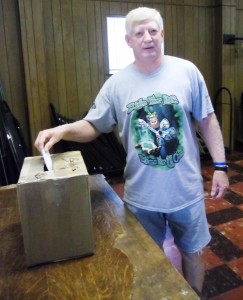 UWUA Local 304 has been very lucky in the officers that have served. Some of them may run again, some will not. Some who serve in one position may vie for another. Some will have an agenda of their own, while most will have the selfless dedication of serving just to be of service to the ideal of unionism.
UWUA Local 304 has been very lucky in the officers that have served. Some of them may run again, some will not. Some who serve in one position may vie for another. Some will have an agenda of their own, while most will have the selfless dedication of serving just to be of service to the ideal of unionism.
Don’t be afraid to talk to current officers or prospective ones. Decide who you will support or if you may even offer yourself for consideration by the membership for a position in the union.
Too many times you’ve heard it said that, “YOU ARE THE UNION”, but truer words were never spoken. Vote like your LIFE and your job depends on it because it probably does!
Moving Forward With a New Attitude!
Your union has a lot going on. While we have bargained our next contract, waiting for results of past arbitration and preparing future ones, filing unfair labor practices against the company for unfairly jockeying schedules, updating our union’s By Laws, and finding us a new permanent union hall.
Most of all, we are done apologizing for being UNION, and it’s time the membership adopted a new attitude and make this union what we need it and want it to be. The most effective weapon organized labor has in it’s arsenal isn’t the backing of the National, or the lawyers on retainer, or the right to file charges; it is and always will be SOLIDARITY!
You want a better contract, then you have to pull together with everybody else to make it a reality and give our Bargaining Committee the support they need to bargain from a position of strength, knowing the membership has their backs.
While workers across the nation are fighting to bring a unions into their workplaces, there are many union members shamefully taking the road offered them by union busting state legislatures who pushed Right To Work laws on workers. Laws handcrafted by the nefarious American Legislative Exchange Council in nice little ready made packages to kill unions, prevailing wage, and other protections workers have taken for granted for decades.
UWUA Local 304 has to get organized and active in this fight because all of us, collectively, have too damned much to lose if we don’t
Many members are familiar with the United Mine Workers, and lament that we as Utility Workers, don’t strike the same kind of fear in the hearts of corporate America that the UMWA has. That wasn’t gave to the miners, they fought for it for decades. They didn’t ignore the boss when they committed gross violations of the C.B.A., they filed grievances, arbitrated, went to court, jail, and marched in solidarity.
The unions that work in our plant are carefully shielded from 304 members. Why?
That’s because many of the contractors we host in our plant have been union workers for a long time. Management’s worse fear is that Harrison employees learn and start to act like real union workers.
You don’t have to disrespect management, or be hard to work with, but you don’t have to live in fear of them either. You have rights as a union member, but it’s up to you to know and exercise those rights. This begins by knowing your Collective Bargaining Agreement, attending union meetings, and raising hell if you have too.
Right To Work was passed to destroy unions, but we are countering by getting stronger through organization and education of our members, and through cooperation and collaboration with other unions.
How To Be A Union
Your union has made every effort to make you aware of labor history, a neglected part of our American history, but now it’s time to look forward.
Union members have been the recognized professionals in all fields of trade craft. The reason is simple, they have the training, experience, and pride to do whatever job in whatever trade they are in, regardless of the circumstances. Union members are proud, tough, and honest working men and women who realize and accept the fact that they must work for a living, but also accept the responsibility that they have a duty to themselves, coworkers, and family to see that the work they perform is done correctly, safely, and has the kind of pay and benefits that make the trade off of time and skill worth it for them and their Brothers and Sisters.
The attributes that make up a good union member are those who make up any good person. The difference is that a union person expands these to his fellow union members the same way they would for family and closest friends. They include:
- Integrity: the quality of being honest and having strong moral principles. Unions deal with schemes hatched by those who may have questionable integrity, to the point of overt dishonesty. Our members must hold themselves and each other to a higher standard. If a union member is wrong, then the honorable thing to do is humbly admit it, own it, learn from it, and move on.
- Honesty: the foundation for trust in a relationship, and trust is necessary for a union to function and thrive. When you’re always honest with someone, it tells them that they can trust you and the things you say. It helps them know they can believe your promises and commitments.
- Fairness: impartial and just treatment or behavior without favoritism or discrimination. All union members are not alike, but each one needs to be treated with the same deference as any other, without bias. This is regardless of political or social views a member may hold because those are the things union busters will try to use to divide the membership.
- Respect: is an attitude of considering someone else’s perspective and holding another fellow member in esteem. It’s shown by; listening to others, affirming people’s opinions, empathizing with different perspectives, disagreeing respectfully with being disagreeable, apologizing when you’re wrong, calling out disrespectful behavior, complimenting the achievements of others, and showing gratitude.
- Maturity: an emotionally mature person is always adding value to themselves and those around them. A curious and learning attitude form a key part of a mature persons daily activities and goals. They are able to understand and manage their own emotions. They also acknowledge that our common goals are more important than petty gripes and personality conflicts.
- Professionalism involves being reliable, setting your own high standards, and showing that you care about every aspect of your job. It’s about being industrious and organized, and holding yourself accountable for your thoughts, words and actions.
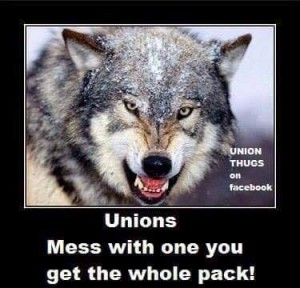 A union member knows themselves, their job, and that their union has their back. They don’t have to be afraid of the ‘boss’, and know that they can call on a fellow union member for help. A union Brother/Sister stands up for each other. Most of all, union workers forgive each other, when needed.
A union member knows themselves, their job, and that their union has their back. They don’t have to be afraid of the ‘boss’, and know that they can call on a fellow union member for help. A union Brother/Sister stands up for each other. Most of all, union workers forgive each other, when needed.
All the above may seem a tall order for someone who’s young, making more money than they ever dreamed possible, and may question what a union can do for them. The answer is simple, even if you dismiss everything above, and that is you are blessed with a good job that pays well and gives you a path into the ranks of America’s middle class, a place union membership created.
Question is, “is your job worth protecting?”
There comes a time in every working persons life when they must take stock of themselves and the people they work with. By doing this, they set their own opinions and make moral and social adjustments in whom they confer and confide with and those they don’t. This requires and honest evaluation of one’s own wants, needs, and desires, and leads to the same examination of these in others.
A union works for the betterment of ALL it’s members, and each true union member should do the same. If you work with someone who consistently plants doubts about your union in your ear or those in your crew, and even openly attacks your union, it may be time to examine their motivations.
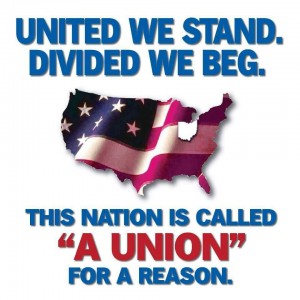 You have tools to help you overcome and develop within your union. One is your Collective Bargaining Agreement. Your CBA forms the foundation of your union. Your duty is to know it and enforce it when the company deviates from it. You can do this by confronting management directly (with another union member as a witness), through your steward, or by utilizing the grievance procedure in your CBA. In support of the CBA is your union’s website, which has a lot of information for our members, as well as your union’s Facebook page.
You have tools to help you overcome and develop within your union. One is your Collective Bargaining Agreement. Your CBA forms the foundation of your union. Your duty is to know it and enforce it when the company deviates from it. You can do this by confronting management directly (with another union member as a witness), through your steward, or by utilizing the grievance procedure in your CBA. In support of the CBA is your union’s website, which has a lot of information for our members, as well as your union’s Facebook page.
Your National Union, Local Union, it’s officers, and affiliates are the only mechanisms in place that fights for you. It is up to you to fight for it because without solidarity, there is no union.
Your union is what you make of it!
West Virginia’s White-Washed Heritage
The power of the media to shape public opinion has always been with us since the foundation of our state, as well as our country. You could liken our nation’s founding to a union organizing drive, with all the elements of an indifferent and unresponsive ruler, his cruel and brutal lackeys, brave agitators and organizers who speak out in speech and print against injustice, and those under the thumb of the ruler who dare rise and and demand a better lot in life.
West Virginia was born out of internal strife within our union of the United States due to inequalities between the wealth of the industrializing northern states and the predominantly agrarian, slave holding, southern states. The West Virginia economy was more tied to that of it’s northern neighbors of Ohio and Pennsylvania, so the newly hatched state sided with the Union, with it’s first capital established in our northern panhandle of Wheeling. The reality was that the divide in our country was a bleeding gash right across the middle of our state, with the first land battle famously being fought in Philippi.
No doubt had the Confederacy won, Virginia would have reasserted it’s control over it’s western rogue territory, or, had those forming our state had sided with the southerners, the battle lines for the Civil War would’ve been redrawn and the survival of West Virginia as a separate state would have been highly doubtful.
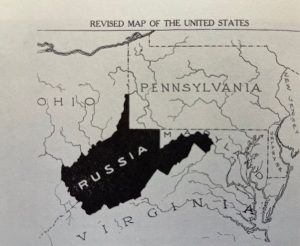 Since 1865, our state has yet to establish itself as an integral part of the fabric of America and distinguish itself with a unique culture and identity of our own. This despite the many famous people born in or with strong ties to our state. Educators Booker T. Washington and Henry Lois Gates; novelists like John Knowles, Stephen Coonts, or Jebediah Purdy; famed aviator Chuck Yeager, WWII Medal of Honor recipient Hershel “Woody” Williams, and Basil L. Plumley who featured prominently in the Vietnam War movie “We Were Soldiers“. We’ve had our share of other famed entertainers and sports figures. Coaches Lou Holtz, Jimbo Fisher, and Nick Saban all hail from West Virginia, as well as entertainers Steve Harvey, Ted Cassidy (Lurch from The Adams Family), Morgan Spurlock, John Corbett, Virginia Egnor (Dagmar), Conchata Ferrell, Kathy Mattea, Peter Marshall, as well as many others.
Since 1865, our state has yet to establish itself as an integral part of the fabric of America and distinguish itself with a unique culture and identity of our own. This despite the many famous people born in or with strong ties to our state. Educators Booker T. Washington and Henry Lois Gates; novelists like John Knowles, Stephen Coonts, or Jebediah Purdy; famed aviator Chuck Yeager, WWII Medal of Honor recipient Hershel “Woody” Williams, and Basil L. Plumley who featured prominently in the Vietnam War movie “We Were Soldiers“. We’ve had our share of other famed entertainers and sports figures. Coaches Lou Holtz, Jimbo Fisher, and Nick Saban all hail from West Virginia, as well as entertainers Steve Harvey, Ted Cassidy (Lurch from The Adams Family), Morgan Spurlock, John Corbett, Virginia Egnor (Dagmar), Conchata Ferrell, Kathy Mattea, Peter Marshall, as well as many others.
Sadly, if you ask someone unfamiliar with our state, they will inevitably identify us as progenitors of the Hatfields and McCoys. Those famed feuders have long, and wrongly, been stereotyped as backwards, uneducated, crude, hard-headed, moonshine drinking hillbillies. Anybody actually familiar with the circumstances of the troubles between the two families know it was a tale that included politics, business, and power between two determined and shrewd patriarchs of rugged pioneering dynasties in direct opposition to each other.
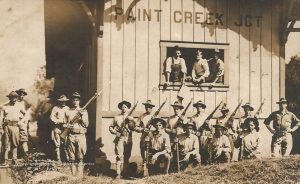 That’s where the story of West Virginia ends, as far as what the rest of the country is concerned. The media has portrayed us by those long set preconceptions, as we labored quietly powering the country by harvesting and selling off our abundant natural resources, with the hard work of our fellow Mountaineers.
That’s where the story of West Virginia ends, as far as what the rest of the country is concerned. The media has portrayed us by those long set preconceptions, as we labored quietly powering the country by harvesting and selling off our abundant natural resources, with the hard work of our fellow Mountaineers.
But why quietly?
It has been said that history is written by the victors, which explains why no other perspective has ever been offered to counter the notion of violent and stand-offish inbreds who sit around on their front porch spitting tobacco and taking potshots at neighbors as well as strangers who dare enter their domain.
 Truth is, the Hatfields and McCoys are a relatively harmless and safe piece of our heritage that the media has edited, massaged, and expounded on for easy consumption by the American public. It’s a multi-layered story that can be safely tapped into to siphon off profit in literature, movies, and by marketing the lore surrounding those colorful characters involved in the long running dispute.
Truth is, the Hatfields and McCoys are a relatively harmless and safe piece of our heritage that the media has edited, massaged, and expounded on for easy consumption by the American public. It’s a multi-layered story that can be safely tapped into to siphon off profit in literature, movies, and by marketing the lore surrounding those colorful characters involved in the long running dispute.
True West Virginia heritage and culture is firmly rooted in America’s labor history and unions. It’s a taboo subject that those of power and influence have sought to erase, hide, or gloss over in our society.That’s why you get Hatfields and McCoys, not Frank Keeney and Fred Mooney, you get Thomas “Stonewall” Jackson and not “General” Bill Blizzard, you get the “Mothman” and not “Mother” Mary Harris Jones. On a larger scale, there have been a multitude of movies depicting the gunfight at the O.K. Corral, but only one notable film that depicts the Matewan Massacre; plenty of gangster movies showing one group of mobsters against another, while The Battle of Blair Mountain remains shrouded in murky history and legend. They give you Jesse James, when what our nation sorely needs is Sid Hatfield, who battled and died in the service of others and not for his own enrichment; sure, everyone knows the names Al Capone and John Dillinger, but not John L. Lewis, Eugene V. Debbs, or Joe Hill.
So why is such an important piece of our West Virginia, as well as American, heritage being suppressed?
 It’s because the “great” industrialists who wrongly get the credit for building our country wish it so. Men like Andrew Carnegie of US Steel, or John D. Rockefeller of Standard Oil, Financier Jay Gould, J.P. Morgan, the Vanderbilt railroad empire, Henry Ford, and many others and their sycophants would have to answer for the crimes they either perpetrated themselves or, as more the case, had their heavily bribed and corrupt politicians, policemen, and thugs. Heavy-handed Baldwin-Felts detectives the coal mines employed as private security, as well as enforcers, and more the same for the Pinkerton Detectives. If these forces were too small, the rich could always rely on a corrupted county or statehouse to dispatch Sheriffs Deputies and their posses, the State Police, and even the National Guard to beat back workers who refused to be shackled into economic and perpetual slavery at the hands of their employers.
It’s because the “great” industrialists who wrongly get the credit for building our country wish it so. Men like Andrew Carnegie of US Steel, or John D. Rockefeller of Standard Oil, Financier Jay Gould, J.P. Morgan, the Vanderbilt railroad empire, Henry Ford, and many others and their sycophants would have to answer for the crimes they either perpetrated themselves or, as more the case, had their heavily bribed and corrupt politicians, policemen, and thugs. Heavy-handed Baldwin-Felts detectives the coal mines employed as private security, as well as enforcers, and more the same for the Pinkerton Detectives. If these forces were too small, the rich could always rely on a corrupted county or statehouse to dispatch Sheriffs Deputies and their posses, the State Police, and even the National Guard to beat back workers who refused to be shackled into economic and perpetual slavery at the hands of their employers.
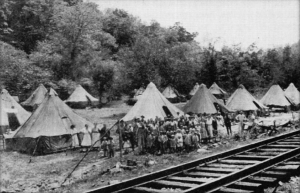 A shameful number of men, women and children were assaulted, maimed, starved, or killed at the hands of employers they served. Here in West Virginia, mothers and fathers were thrown out into the street with all their belongings and left to the mercy of the elements because someone told a gun thug the worker possessed, talked about, or supported the union. These families were forced to the backs of hollers with nothing between them and nature but a thin canvas tent. In those small clusters many died of starvation, disease, exposure, or the frequent bullets that seemed to always be flying around.
A shameful number of men, women and children were assaulted, maimed, starved, or killed at the hands of employers they served. Here in West Virginia, mothers and fathers were thrown out into the street with all their belongings and left to the mercy of the elements because someone told a gun thug the worker possessed, talked about, or supported the union. These families were forced to the backs of hollers with nothing between them and nature but a thin canvas tent. In those small clusters many died of starvation, disease, exposure, or the frequent bullets that seemed to always be flying around.
Whether it was the Pullman Strike, the Triangle Shirtwaist fire. the Haymarket Riots, the Paint Creek and Cabin Creek strike, the Ludlow Massacre, or many other major eruptions of frustrated and desperate workers, the masters of business and industry would have a lot to answer for. The indiscriminate beatings, destruction of property, denial 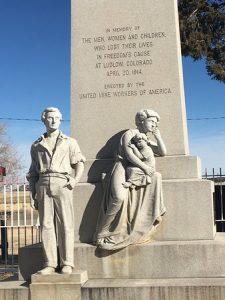 of constitutionally granted rights, subversion, spying, and almost any other indignity that can or can’t even be imagined.
of constitutionally granted rights, subversion, spying, and almost any other indignity that can or can’t even be imagined.
The war goes on today. Powerful forces have used their media mouthpieces, slick political lapdogs, and vast sums of money to pit neighbor against neighbor, American against American, and justify their treachery both in court and in front of the news cameras. All the while they incrementally push the working class closer and closer to the coal camps they left only a couple of generations ago, while proclaiming themselves servants and pillars of Christianity.
How bad is it?
The tern “redneck” used to refer to the red kerchiefs strikers wore to recognize friends from foes, but now it’s used in a derogatory sense to indicate the ignorant and uncouth. They call trade unionists communists, socialists, and/or fascist to the point that, though describing different political philosophies, the words have mutated into synonyms for each other.
To clear this up, a fascist is one man at the top calling the shots and holding all the wealth themselves. A communist believes no one should be rich, A capitalist believes in oligarchy, made up of many want to be fascist willing to sacrifice anybody as long as it increases their coffers. A socialist has no problem with people being rich, they just believe in a wealthy society no one should be so poor that they cannot live.
Before unions, every employer was a fascist; “my way or the highway.”
Many try to paint unionism as socialist or communism (which is not true since you can’t be either and belong to an American union), but what unions actually do is bring democracy to the shop floor, for every worker equally.
To fight this trend, working people have to actively search and study their missing heritage for themselves and reclaim the rights granted them by the blood and tears shed by men, women, and children for all workers to have a better life for them and their families.
Let this be your New Years resolution!
Merry Christmas and Happy New Year!
Things You Need to Know about “Right to Work”
So far, 28 states have enacted RTW (Right To Work) laws, predominantly in the South and Southwest. While right-to-work laws have nothing to do with rights, work, or guaranteeing jobs for workers, some in the business community view it as a strategy for attracting new businesses to locate in West Virginia, despite its downside risks of lowering wages and hurting unions that helped build the middle class in our country.
Here are five important things you need to know:
1. It’s about lowering wages and eroding workplace protections. As an economic development tool, the professed aim of RTW is to reduce the power of unions by depriving them of resources (dues), which ultimately weakens the union and strengthens the employers’ hand in bargaining for lower pay and benefits. By decreasing the likelihood that businesses will have to negotiate with their workers, this will lower labor costs, reduce the cost of doing business, and will supposedly be an incentive for out-of-state manufacturers and other businesses to locate in West Virginia. If RTW didn’t lower wages and weaken workplace protections across the board, there would be no incentive for companies to move to West Virginia. This, in a nutshell, is the hope of RTW supporters such as the West Virginia Chamber of Commerce.
2. Academic research is unanimous that RTW reduces unionization. While there is no strong evidence that RTW laws help or harm a state’s economy, there is a broad academic consensus that it weakens labor unions. If this happens, it could mean even worse economic and social outcomes in the state. This is because unionization is strongly associated with higher economic mobility, less income inequality, higher wages, safer workers conditions, better benefits and larger voter turnout.
3. The WVU report on RTW is fundamentally flawed. While a recent study by John Deskins at West Virginia University concluded that RTW would boost jobs in West Virginia, the study is fraught with basic design problems. For example, the WVU study misidentifies that Texas and Utah adopted RTW in the 1990s, when both states adopted RTW before 1960. The WVU study also failed to adopt a standard academic practice that accounts for unobserved differences between states, such as the advent of air-conditioning in the South, access to oversees markets, and other important state characteristics. When researchers at the Economic Policy Institute accounted for these problems and replicated WVU’s findings, they found no relationship between RTW status and employment growth. Tim Bartik, an economist with the Upjohn Institute and one of the country’s leading economic development experts, recently reviewed the WVU study and concluded that it “does not provide any convincing evidence that a state that adopts RTW laws will, as a result, experience faster job growth.” The flaws with the WVU study highlight why state policymakers should not rely on its conclusions to adopt RTW.
4. RTW is not about “workplace freedom.” While RTW proponents define ‘workplace freedom” as letting workers opt out of paying a representation fee to pay for the benefits they are receiving under any negotiated union contract, most would define workplace freedom as being treated with dignity and respect on the job. That means getting paid an honest wage for an honest day’s work, and having access to benefits such as paid sick days, paid family leave, health care, and a retirement plan. The only freedom workers would receive if RTW were enacted is the ability to get something for nothing.
5. Low workforce skills are the central reason for West Virginia’s economic woes, not lack of RTW. A recent in-depth study by the Center for Business and Economic Research at the University of Kentucky that explored why the state is so poor found that the shortage of skilled workers – not RTW – was the central reason for the state’s relative poor economic performance. Since West Virginia faces many of the same social and economic problems as Kentucky, policymakers would be well advised to promote polices that improve the skills of the state’s workforce instead of RTW that could reduce workforce training.
The legislature in West Virginia must learn that we can’t build West Virginia by tearing down working families and unions. Instead we need to focus on the policies that we know work, such investing in early childhood education, research and development, higher education, workforce training, and effective ways to help more people get out of poverty.
Who Would Do Such A Thing?
The effects of West Virginia’s so called “Right To Work” are creeping into unions across our state. “Right To Work” is often translated as “Right To Work For Less”, and is often pointed out as a law that confers no rights, or provides no work.
The sole purpose of “Right To Work” is to weaken workers bargaining power by attacking the “closed shop” concept, whereas all employees must be part of the union in a defined bargaining unit. In other words, if you benefit by working under a collective bargaining unit, then you are obligated by being a dues paying union member. “Right To Work” introduces division within a union by allowing members to opt out of their financial obligation to the union while still reaping the benefits of working under a collective bargaining agreement and having access to use the grievance procedure. Though they can’t run for a position as a union officer, or vote for or against those who do, they get to “ride along” for free.
Anyone with even a cursory knowledge of labor history, especially right here in West Virginia, may wonder why anyone would choose NOT to be a full and supportive member of a union.
After all, “who would do such a thing?”
To answer that, you have to understand the hateful and racist origins of “Right To Work”.
The idea for modern Right-to-Work laws came from Dallas Morning News’s William Ruggles, who, on Labor Day 1941, published an editorial calling for the national prohibition of the closed union shop. Ruggles was soon visited by a bombastic Texas oil man by the name of Vance Muse and secured the writer’s blessing for his Christian American Association to launch a campaign to outlaw contracts that required employees to belong to unions. Ruggles was the one who suggested to Muse a name for such legislation—Right-to-Work.
 Muse placed Right-to-Work on the conservatives’ political agenda of the Christian American Association. You have to understand that Vance Muse was described as a larger-than-life Texan whose own grandson described him as “a white supremacist, an anti-Semite, and a Communist-baiter, a man who beat on labor unions not on behalf of working people, as he said, but because he was paid to do so.”
Muse placed Right-to-Work on the conservatives’ political agenda of the Christian American Association. You have to understand that Vance Muse was described as a larger-than-life Texan whose own grandson described him as “a white supremacist, an anti-Semite, and a Communist-baiter, a man who beat on labor unions not on behalf of working people, as he said, but because he was paid to do so.”
It’s not coincidental that Right-to-Work took firm and early root in the Jim Crow south. In those states, few blacks could cast free ballots, poll taxes prevented most working-class whites from voting, election fraud was rampant, and political power was concentrated in the hands of an elite. Right-to-Work laws sought to make it stay that way, to deprive the least powerful of a voice, and to make sure that workers remained divided along social and racial lines.
Vance Muse attracted national attention through his work with the (pre-Koch brothers) Southern Committee to Uphold the Constitution, which sought to deny Roosevelt’s re-nomination in 1936 on grounds that the New Deal threatened the South’s racial order and made a lucrative living lobbying throughout the south on behalf of corporate interests or, in the words of one of his critics, “playing rich industrialists as suckers.” Over the course of his career, he fought women’s suffrage, worked to defeat the proposed constitutional amendment prohibiting child labor, lobbied for high tariffs, and sought repeal of the eight-hour workday law for railroaders.
Since then, Right To Work has been the centerpiece for the richest supporters to destroy unions. Through heavily, and mostly secretly, funded mercenary agents like The National Right To Work Foundation, shadowy unscrupulous union-busters, The American Legislative Council (ALEC), and even local Chambers of Commerce’s in every American city they have massaged, camouflaged, and marketed Right To Work to the point of making it seem like a reasonable and legitimate political policy that empowers workers and hold unions accountable. The truth is that RTW is still the dirty and disgraceful concoction of the elite to deny those who built their fortunes a fair share in those benefits and profits.
These are the same people who, less than a couple of generations ago, had our fore bearers living in company houses, on company land, shopping at the company store, and using company issued scrip. They cheated many of our ancestors out of their land, which was settled and tamed by their families, all to get rich on mining the coal that lay deep in the ground.
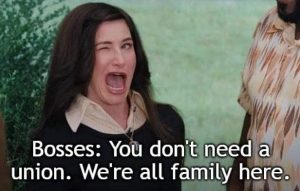 Did these speculators feel any remorse?
Did these speculators feel any remorse?
No, because that’s the way they think it should be.
We now come to where we are at today. Right To Work is on the books of at least 28 states, union density has steadily declined to a fraction of what is was a generation ago, and workers wages, benefits, pensions, and safety are under assault like never before.
There is hope. Workers are starting to take notice of the role they play in our nation’s social fabric, and are deeply unsatisfied with taking concessions, the instability in their workplace, pensions being legally stolen or curtailed, and those in power, both politically and economically, get richer while everyone else gets left behind. Workers are once again turning to unions to stem the tide against them.
The greatest power a union has is solidarity, when all members stand together in a united front, but, just as it was meant, Right To Work brings divisiveness into that very fabric that makes a union a union.
Those in charge have always been able to find those who are union in name only and play upon their ambitions and lack of intelligence and critical thinking skills to weaken a union.
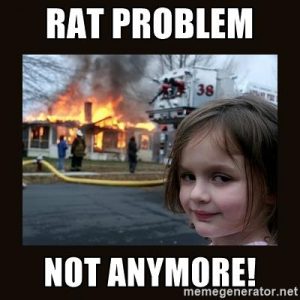 Collectively, unions simply call them, “rats”.
Collectively, unions simply call them, “rats”.
Like a rodent, these workers work only for their own desires and will gnaw at the union base by offering themselves as a conduit for those in charge to spread disinformation, slander, rumors, as well as acting as a spy for management.
Right To Work gives these folks. who usually like to work under the radar and in the dark, an opportunity to openly declare themselves as enemies of the union, out for only themselves. They are willing to accept all the benefits of a collective bargaining agreement while not supporting or contributing to the union.
They become , “free-riders”.
This lack of honor, integrity, and ethics is the antithesis of what unions stand for. We stand for acting ethically, with integrity, and the sole solid purpose of protecting our members through a fraternity of union Brothers and Sisters who look out for each other, respect each other, and defend each other.
At some point, every union member has to ask themselves, “where do I stand.”
Unions hope your answer is shoulder to shoulders with all workers, for the benefit of all who labor for a living.
UWUA To Stay at Harrison!
Once again, Harrison Power Station employees sent a clear message to anyone who was listening that Harrison is a UNION station! In a mail in vote counted October 14th, 2021, Harrison workers gave the UWUA a clear and decisive 85 to 53 mandate as our collective bargaining representative.
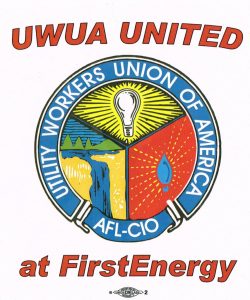 This is the SECOND attempt to decertify 304, and like the first, this one also failed. UWUA Local 304 wishes to THANK those members who’ve invested their trust in us, and hope to earn the same loyalty and respect from those who did not vote with 304.
This is the SECOND attempt to decertify 304, and like the first, this one also failed. UWUA Local 304 wishes to THANK those members who’ve invested their trust in us, and hope to earn the same loyalty and respect from those who did not vote with 304.
The Passion of Those Who Support 304
The reason union organizing drives and drives to de-certify a union can get so tense and adversarial is because those who favor unionization are passionate about it and willing to stand up and defend it.
The act of forming a union, especially in this day and age, is an uphill battle. Corporations have shown a willingness to spend millions of dollars to deny workers the right to organize by hiring mercenary labor relations firms who basically come in and take over managing the plant and galvanize every company manager and supervisor against the organizing effort. They will bend the rules, to the point of breaking, and enlist fear and division to strong arm the workers into voting against their own best interests to reject being union.
 UWUA Local 304’s story is a great example of workers demanding a say in the workplace that sustains them.
UWUA Local 304’s story is a great example of workers demanding a say in the workplace that sustains them.
Monongahela Power Company was an old, solid, and respected utility back in the days when companies were based locally and they took active and positive interest in the customers they served and cared for the employees that made them successful. These were the days when the Plant Director actually had the authority and power to make decisions at the local level and the integrity to reject initiatives from company stooges that were not in the best interests of the plant or people. Many of the old veterans of Harrison Power Station described the atmosphere created by that kind of leadership as being a part of an extended family of working people with the noble mission of keeping their neighbors safe by making sure the electric stayed flowing.
Then along came Allegheny Energy, which consolidated many small local utilities into one conglomerate. This was the era of Enron and de-regulation that stoked the greed of opportunistic business men and got them interested in utilities. You see, before all that happened, most utilities were thought of, in the financial world, as stodgy widow and orphan stocks that reliably paid meager dividends and were run by dull geeky engineering types with thick glasses and pocket protectors.
The employees of Harrison helplessly watched as the money men took over, the old management was retired and replaced with “yes men” who blindly took orders from the home office, and soon the company was “diversifying” into unfamiliar “ventures” while the discipline and money that kept their primary mission of making and distributing power went away.
While the business executives looked for ways to leech every dollar out of the company, this led to years of high handedness by local management, favoritism, nit-picking, wage disparity, and the workplace being dominated by backstabbers, double dealing, and infantile behavior of managers with huge unchecked egos; the employees said enough is enough and began organizing.
Of course, just saying you’re organizing can get you fired in many shops, and always paints a target of the back of those who carry the fight. The workers at Harrison were no different then as they are now, except maybe a little older. They were all people who had wives, kids, grand-kids, mortgages, car payments, and all the normal pressures many of us still have, but they believed in the need to draw a line in the sand and have a voice in their workplace.
Anyone who has never been through an organizing campaign can never understand the kind of stress these people endured or the amount of risk they faced just for standing up and exercising the often denied right to form a union. Those who went through this came out as brothers in arms, veterans of the war on workers.
 That’s where the passion comes from. It came from workers standing together and doing something meaningful to protect the jobs each one relied on. When anyone who participated in that feat hears someone bash the union, threaten to vote it out, or flippantly assert that all they have to do is vote a union back in if they don’t like being non-union , it really ignites a fire in them because they lived through what it takes to get a union in place so that we can deal with our corporate owners on a fair and even plain.
That’s where the passion comes from. It came from workers standing together and doing something meaningful to protect the jobs each one relied on. When anyone who participated in that feat hears someone bash the union, threaten to vote it out, or flippantly assert that all they have to do is vote a union back in if they don’t like being non-union , it really ignites a fire in them because they lived through what it takes to get a union in place so that we can deal with our corporate owners on a fair and even plain.
Kid yourselves if you want to, but doubt runs high that anyone who would work to break a union could ever muster the kind of courage it takes to organize a successful union drive, even if another union would have us after de-certifying, which is highly unlikely. A union is about looking out for each other, while breaking a union is about a few individuals pursuing interests that only benefits them at the cost of everyone else.
Be smart- STAY UNION!
Labor Day Is About U(nion)!
Which of these do you currently have:
___ Homeowners Insurance
___ Automobile Insurance
___ Health Insurance
___ Life Insurance
If you checked ANY of he above, have you considered protecting the ONE thing that allows you to afford coverage for the things you’ve worked so hard for?
Wouldn’t it be nice if you could have job insurance? The kind that protects your job from unfair persecution by those above you with whom you may disagree, protection against being unjustly accused or even fired?
That’s what a UNION is! If something just arise at work that threatens your earning ability, whether that be an overtime issue, a seniority issue, or disciplinary actions against you that affect your wages or job; a UNION is the only mechanism you have to effectively fight any of the above, and more.
Corporations have entire departments for their legal protection, heavily staffed with attorneys, para-legals, researchers, and staff, and ready to jump to the defense of the company at a moments notice. Don’t you, as a worker, deserve the same resources if your livelihood is threatened?
Now, out of the insurance coverage types listed above, which gives you a refund if you don’t use them. Do you get you homeowners premiums back if your house doesn’t burn down? Do you get your car insurance money back if you don’t crash your car? Do you get any type of rebate or refund on your healt or life insurance if you don’t get sick or die? The answer is, “NO!”
Even if you don’t attend your union meetings or take advantage of any of the benefits that being in a union offers, at the very least, you still have the resources and experience of a national organization and local representation who will fight for you.
Here’s the kicker, except for the last few years, union dues have been tax deductible. If the current Administration has it’s way, they will be again.
If you think you can decertify a union and then just vote one back in if you don’t like the changes that happen afterwards, then you have no idea how hard and brutal a union organizing campaign is. The UWUA invested years and money in Harrison Power Station joining them. When a union decertifies, no other union wants to affiliate with a workforce that exhibited such reckless and short sided view of their workplace and their role in it. They won’t.
If you are lucky enough to belong to an established union, Labor Day is all about YOU!
